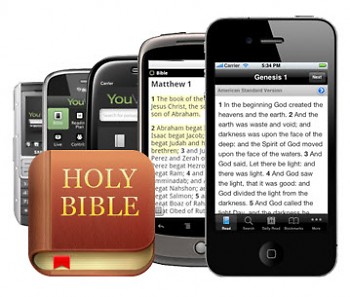What place does tradition hold in your church's identity? How do those outside your congregation view the value and importance placed on a church's traditions - which may or may not connect with their personal culture, or tribe in our multicultural society? In Grand Rapids, many families and churches maintain a close knit cultural identity based on their church membership, but this isn't true of much of the rest of the country. So the value placed, and the benefits received from long-standing traditions may appear stodgy or irrelevant to those outside a religious community.
Maybe it's time for a paradigm shift. When Martin Luther launched the Protestant Reformation, he faced the dilemma of communicating a current message to an unchurched population. To bridge the gap, he composed hymns with the melodies of tavern tunes. His goal was to connect the message to a melody his hearers wouldn't soon forget. Charles Wesley, the author of over 6000 favorite Protestant hymns, also adapted his poetry to contemproary music of his day. These men's innovative risks created hymns which became part of the church's identity for nearly 500 years.
Yesterday's Christian traditions and today's cultural trends are in tension with one another, and yet Christ followers want to reach beyond the walls of their churches and influence our culture for the kingdom. The alternative, if Christians don't adapt the delivery methods to today's cultural appetites, is that churches risk becoming irrelevant relics, an out of touch “religious club” that makes little to no real impact in today's modern culture.
Digital tools for internet audience
The Internet has fundamentally changed modern culture. While yesterday's generation watched a black and white TV, that on a clear day received three channels, today's families drink a flood of multimedia information from a broadband fire hose. My neighborhood was close knit and we knew everyone up and down the block. Today's neighborhoods are multicultural, and houses from each other are families who have never spoken, and may speak different languages. So churches face the same questions that confronted Luther and Wesley. How do we communicate an unchanging message in a culturally relevant method?
Lifechurch.tv of Edmond, OK ran headlong into the same question, and created the most downloaded Bible app for today's smart phone and internet users. The YouVersion Bible app and website gives users free access to the Bible in over 50 languages and dozens of translations. While many Christians don't carry a Bible with them, the YouVersion mobile app is available everywhere. In addition to the Bible text, YouVersion includes a “Live” feature, which three local churches are using to connect with their congregations. The Live feature gives churches the ability to post upcoming services, sermon notes, outlines, church bulletins, and even accept prayer requests online, in real time.
Frontline Church on Plainfield in Grand Rapids uses the “Live” feature of the YouVersion mobile app. When the time for the teaching sermon arrives, some in the congregation reach for their smart phones while others grab their Bibles. The staff uploads a sermon outline to the YouVersion app, and members can read along, click through to Bible verses, and add their own notes using a digital tool that’s part of their daily lives. Senior Pastor Rick Halstead from Calvary Baptist Church in Grand Rapids also makes use of the app, and has pages of notes uploaded into the app for use during sermons, or other live events.
Pastor Robert Barber, of Journey of Faith Church, is also excited about how the YouVersion Bible app allows their church to reach out. For four and a half years, Journey of Faith congregation has gathered in the Celebration Cinema movie theater complex at Kalamazoo and 60th Street. Pastor Barber doesn't see a traditional church building in their congregation's future. He would like to plant local congregations in each Celebration Cinema theaters around greater Grand Rapids. By building a congregation in a public venue, Pastor Barber's vision is to connect non-church goers to a relationship with Christ, or reconnect those who've drifted from their home church.
“The church grows person to person,” says Barber. “We use contemporary marketing and tools to connect with our audience so they can hear the salvation message.”
The Rapidian, a program of the 501(c)3 nonprofit Community Media Center, relies on the community’s support to help cover the cost of training reporters and publishing content.
We need your help.
If each of our readers and content creators who values this community platform help support its creation and maintenance, The Rapidian can continue to educate and facilitate a conversation around issues for years to come.
Please support The Rapidian and make a contribution today.

